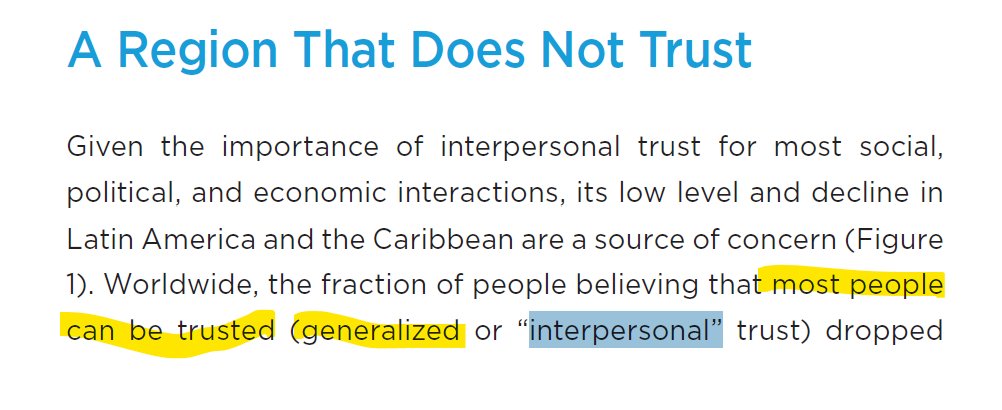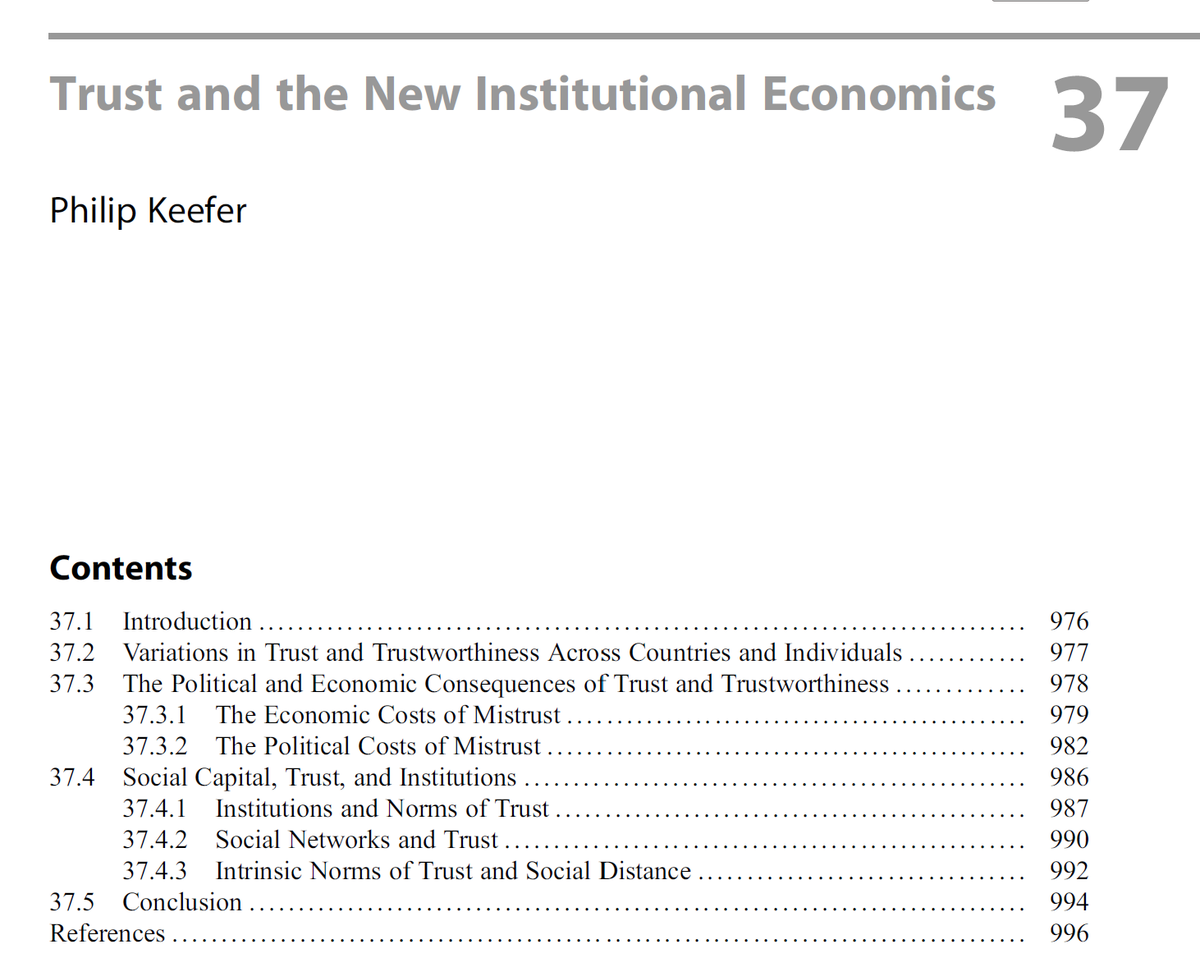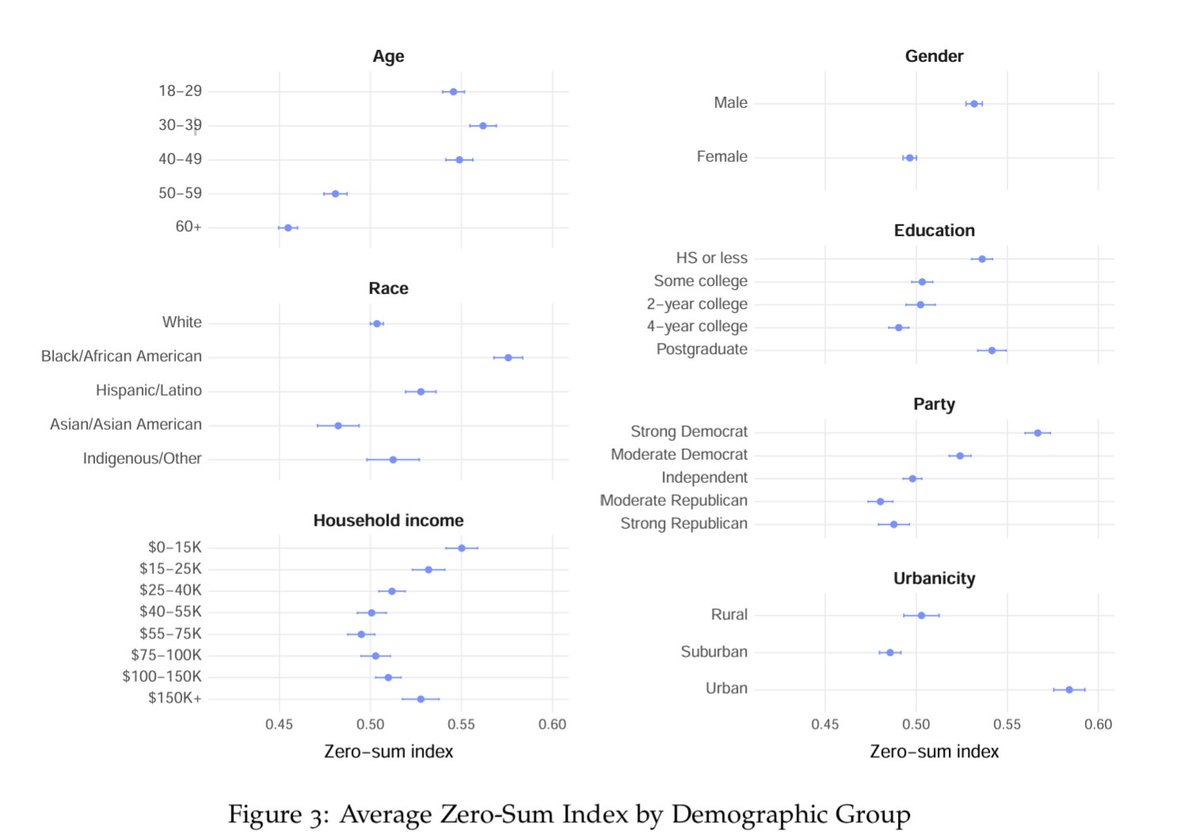
Professor of Economics, George Mason University. Chief Economist, @bluechip_org. Wrote the Singapore Trilogy, @stanfordpress. Went to the Louvre on a Tuesday.
How to get URL link on X (Twitter) App


 These are self-reports of whether a person has ever been arrested, convicted, or either in jail or prison. Ancestry is self-reported as well.
These are self-reports of whether a person has ever been arrested, convicted, or either in jail or prison. Ancestry is self-reported as well.

 In a new response to my Heterodox STEM post, Nowrasteh says "Garett cites older papers that used inconsistent terminology."
In a new response to my Heterodox STEM post, Nowrasteh says "Garett cites older papers that used inconsistent terminology."




 @ATabarrok @MargRev B/W zero-sum worldview gap is bigger than the M/F gap, about the same as the strong Dem/strong GOP gap:
@ATabarrok @MargRev B/W zero-sum worldview gap is bigger than the M/F gap, about the same as the strong Dem/strong GOP gap: 

 How does Ethena work?
How does Ethena work? 


 The screenshot above is from his ReadMe file here, part of a ZIP that includes all of the replication data.
The screenshot above is from his ReadMe file here, part of a ZIP that includes all of the replication data. 

 engelsbergideas.com/essays/battlin…
engelsbergideas.com/essays/battlin…

 If Bryan Caplan is concerned that self-reporting bias of subjective attitudes might be driving cultural transplant findings...
If Bryan Caplan is concerned that self-reporting bias of subjective attitudes might be driving cultural transplant findings...

https://twitter.com/AlexNowrasteh/status/1609604178799624193
 From the abstract of the first Deep Roots literature review:
From the abstract of the first Deep Roots literature review:

 "In.. The Culture Transplant.. Jones.. points out that just 7 countries (the US, China, Japan, South Korea, France, Germany & the UK) are responsible for the vast majority of the world’s patents, research grants, scientific publications, & Nobel prizes."
"In.. The Culture Transplant.. Jones.. points out that just 7 countries (the US, China, Japan, South Korea, France, Germany & the UK) are responsible for the vast majority of the world’s patents, research grants, scientific publications, & Nobel prizes."
 I've given the above presentation to two academic audiences so far, glad to present it to other interested audiences upon request.
I've given the above presentation to two academic audiences so far, glad to present it to other interested audiences upon request.

 Assad wasn't "born to rule," he was an ophthalmologist whose older brother died in a car crash. Assad was trained in the UK, knew what life in the West was like.
Assad wasn't "born to rule," he was an ophthalmologist whose older brother died in a car crash. Assad was trained in the UK, knew what life in the West was like. 